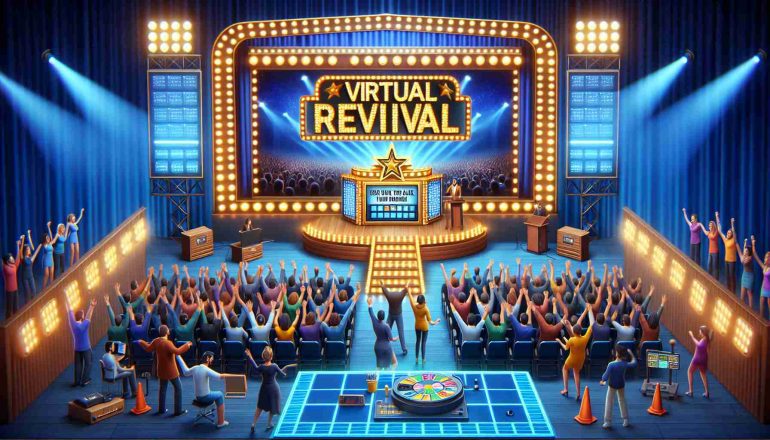- A popular game show featuring a fully AI-generated trailer is set for a September revival.
- The trailer was created using advanced technologies such as GANs and NLP, showcasing AI’s role in media production.
- AI offers business advantages like faster production times and reduced costs by minimizing human involvement.
- Public reception to AI-generated content is mixed, with some concerns about the lack of emotional depth and job displacement.
- AI opens innovation doors and raises ethical and creative challenges for the entertainment industry.
Main AI News:
The beloved game show is set for a grand revival this September, but its return isn’t the only thing making headlines. The network has unveiled the first-ever fully AI-generated trailer, signaling a bold step forward in media production. Premiering on August 30, the trailer was entirely crafted using advanced AI technologies like generative adversarial networks (GANs) and natural language processing (NLP), resulting in a visually stunning and immersive experience. This groundbreaking use of AI highlights the growing role of technology in shaping the future of entertainment.
The upcoming season, with its familiar host and exciting prizes like cash and luxury cars, is poised to capture the attention of both long-time fans and new audiences. The AI-generated trailer symbolizes this modernized approach, blending tradition with cutting-edge technology in a way that may redefine industry norms.
AI’s involvement in content creation brings several business benefits, including faster production times and cost savings, as networks can reduce the need for large production teams. However, the shift also raises questions about authenticity and the future of human creativity in entertainment. While AI can generate impressive content, some critics argue it may need more emotional depth of human-driven projects. Additionally, there are ethical concerns about job displacement, with roles traditionally filled by writers and designers potentially at risk.
Public reception to the AI-generated trailer has been mixed. Some viewers praised its innovation, while others expressed concerns about the loss of the human touch. As AI advances, networks must balance technological efficiency and maintain a meaningful connection with audiences.
Despite these concerns, the integration of AI presents opportunities for innovation in the entertainment industry. AI can generate unique creative concepts and predict audience preferences, offering media companies a competitive edge. Yet, the risk of formulaic content and ethical issues around job displacement remain real challenges.
As the game show prepares for its much-anticipated return, the AI-generated trailer marks the beginning of a broader conversation about the future of media production. Whether this technological integration signifies a lasting shift or a passing trend remains to be seen, but it’s clear that AI will play a significant role in shaping the entertainment landscape moving forward.
Conclusion:
Integrating AI into content creation marks a significant shift in the entertainment industry. It signals a potential reduction in production costs and time, allowing companies to generate content faster and more efficiently. AI also offers opportunities for media companies to differentiate through innovative, tech-driven solutions. However, the market must be prepared to address concerns about job displacement and the risk of homogenized content. Companies that balance the benefits of AI with maintaining human creativity and emotional connection will likely gain a competitive edge in the evolving landscape.

